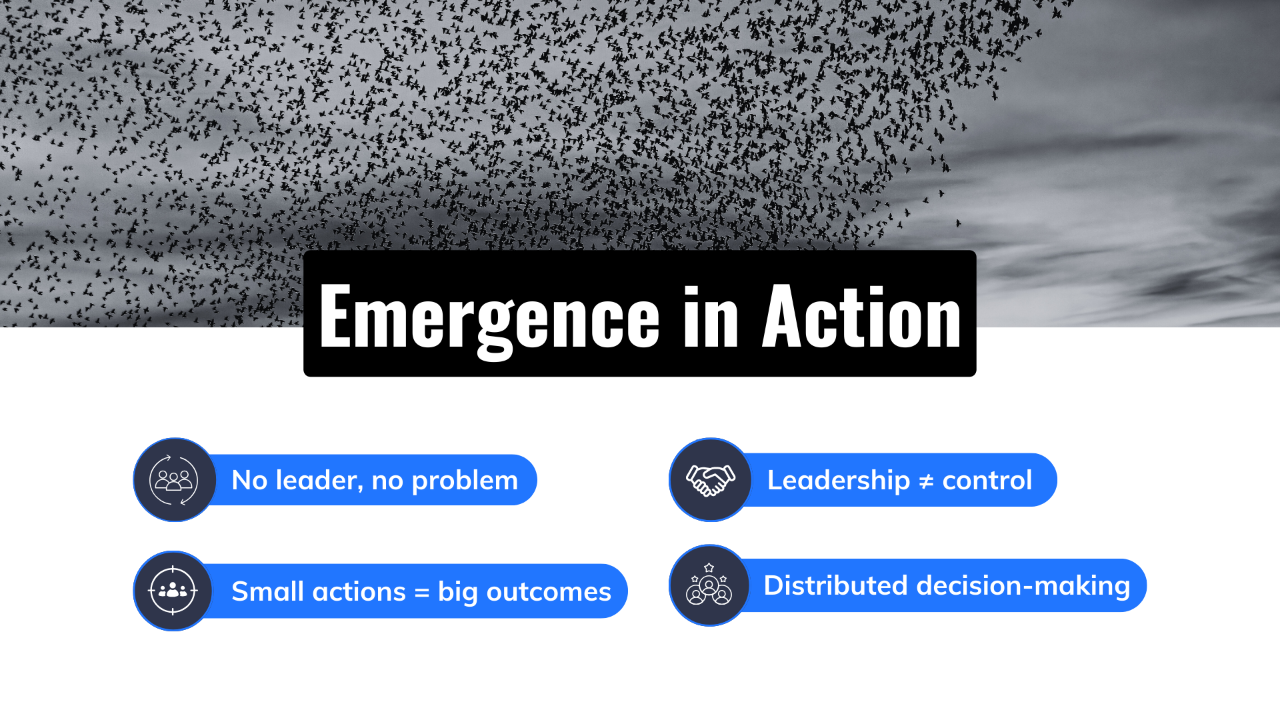Nugget #65 ~ Emergence – When Nobody’s in Charge and Everything Works Anyway
Sep 19, 2025
You’ve likely witnessed the phenomenon. A murmuration of starlings swirls in the dusk sky - thousands of birds, zero mid-air collisions, no flight plan, no birdy traffic control. Or a team of ants builds a colony with underground cities, ventilation shafts, and a queen suite-without ever convening a planning session or hiring a project manager.
This magic has a name: emergence. It happens when local rules, small interactions, and simple behaviours combine to create complex, adaptive outcomes. And it drives many of the most successful systems in nature-and, when allowed, in business too.
Conventional management worships control. Dashboards. Metrics. Approvals. Chains of command. But living systems tell a different story. Ants don’t need a king. Neurons don’t report to a brain boss. The beauty lies not in who gives the order but in how the system interprets small signals, adjusts, and self-organises.
An emergent system doesn’t require anyone to see the whole picture. It thrives because each part follows simple principles and stays responsive to its neighbours. What emerges is more intelligent than any one agent within it.
Many a well-meaning executive believes they’re “bringing structure” when they’re actually suffocating emergence. In project teams, over-designing workflows, enforcing unnecessary check-ins, and over-architecting processes often backfires. Too much centralised decision-making slows the organism down.
In contrast, some of the most innovative organisations operate on the principle of distributed decision-making. They trust local knowledge. They empower small units to act. They create simple rules - and then get out of the way.
That’s emergence.
Leaders fear emergence because it feels like letting go. And to be fair, it is. But letting go of what? Micro-control. The myth that you must see it all, know it all, and decide it all.
True leadership in emergent systems doesn’t mean doing less; it means doing something else: setting clear principles, building feedback loops, promoting transparency, and cultivating trust.
Smart Questions to think about:
Prompt 1: If you gave your team a few clear guiding principles instead of strict rules, how might their behaviours evolve?
Prompt 2: Where could emergent collaboration replace top-down control in your current system?